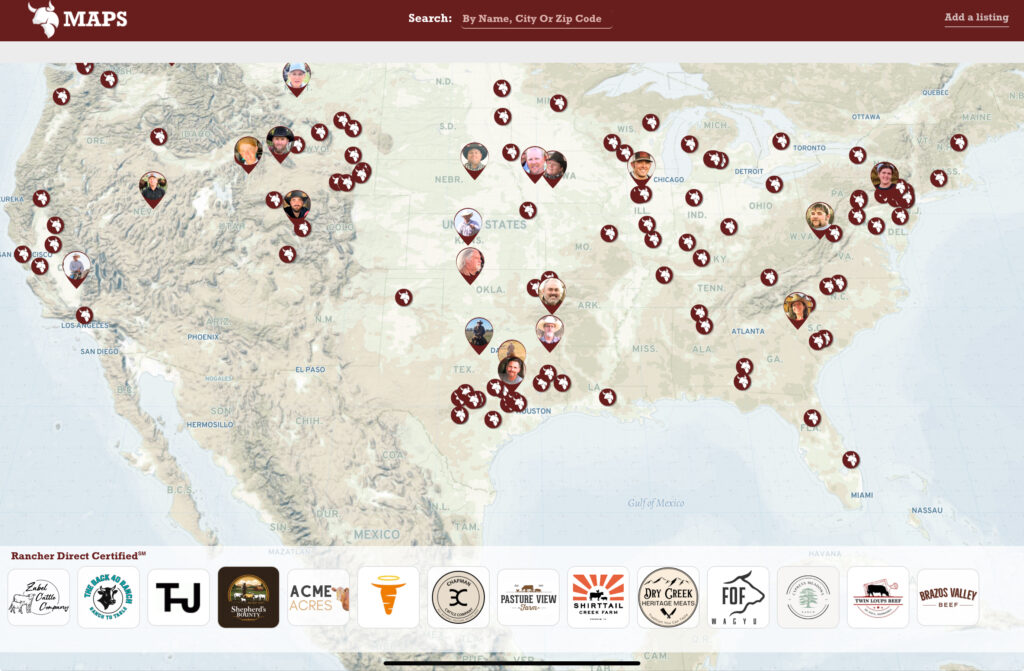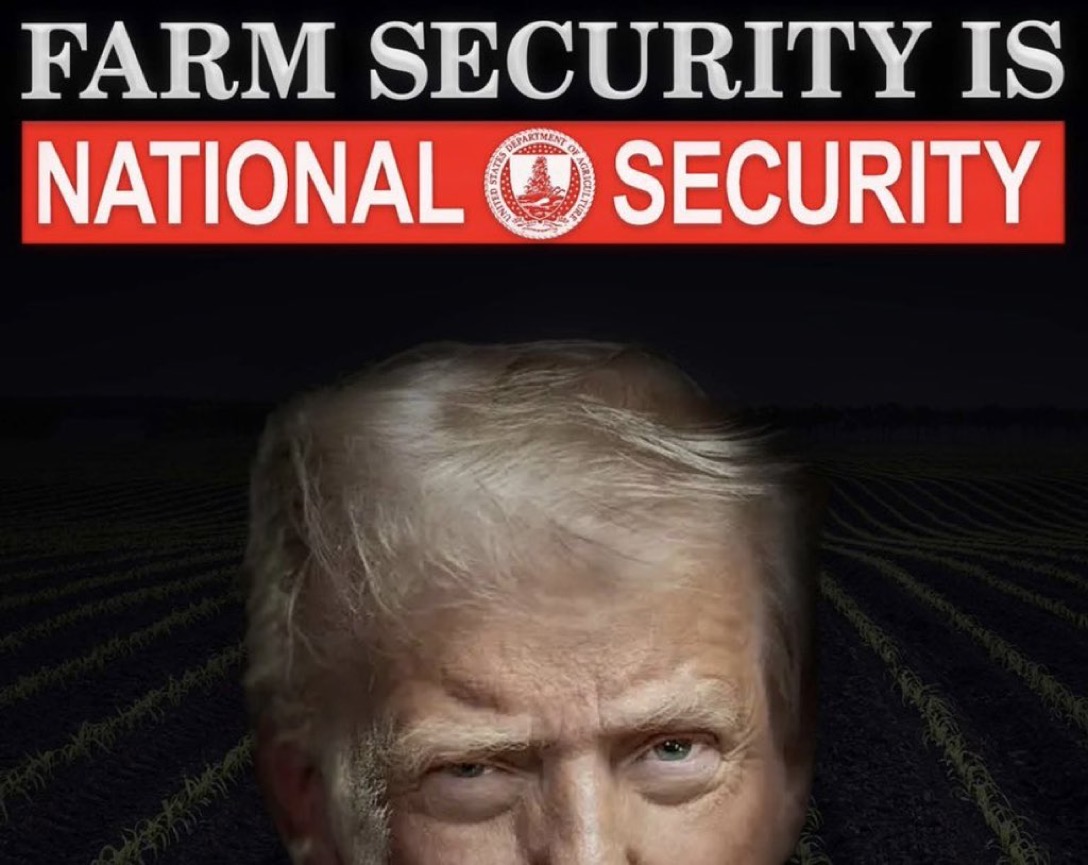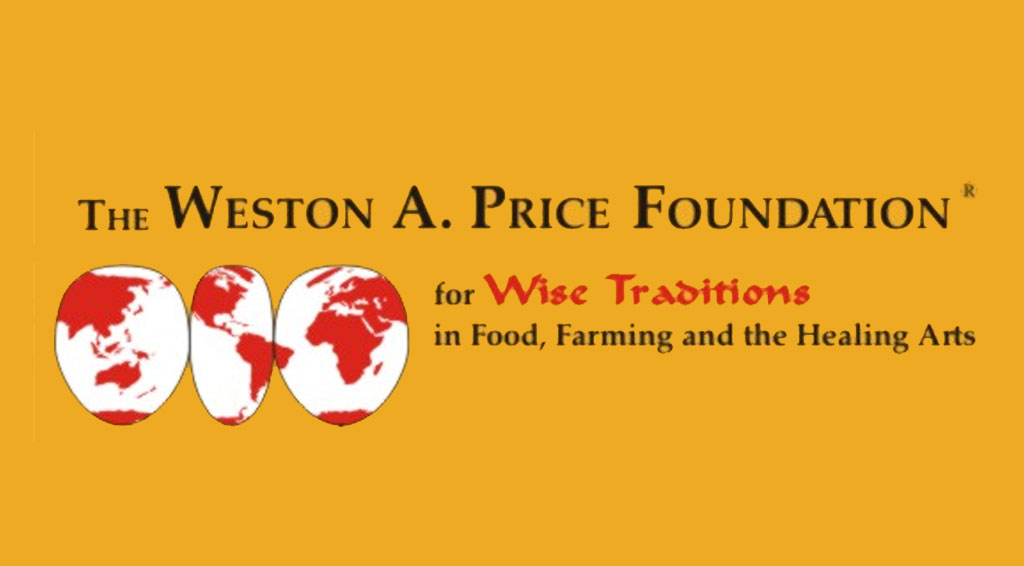They said it would start a trade war.
They said it would confuse consumers.
They said it would cost too much.
And now, 25 years later, they’re saying it again.
But this time, the lies are unraveling.
On November 7, 2025, President Donald Trump ordered the Department of Justice to investigate America’s biggest meatpackers for potential collusion, price-fixing, and consumer fraud. The targets—JBS, Cargill, Tyson, and National Beef—control 85% of U.S. beef processing and operate with vertically integrated, foreign-owned opacity.
Within hours, ag accounts across X erupted with one unified call:
Bring back mandatory country-of-origin labeling (MCOOL).
And they’re not wrong.

The Labeling Law They Buried
Mandatory COOL wasn’t a partisan stunt or a protectionist fantasy.
It was passed. It was implemented. And it worked.
The 2002 Farm Bill required all retail beef, pork, and lamb to carry labels showing where the animal was born, raised, and slaughtered. USDA’s own reports showed it helped recover domestic premiums and gave consumers real transparency.
Then came the retaliation myth.
In 2015, facing WTO pressure from Canada and Mexico and packer-led panic about export access, Congress quietly repealed MCOOL for beef through a buried omnibus rider—no floor debate, no recorded vote.
But this wasn’t the first time transparency lost to trade group theatrics.
It wasn’t even the tenth.

Exhibit A: The 2000 Hearing They Don’t Want You to Read
On September 26, 2000, Rep. Helen Chenoweth-Hage (R-ID) chaired a House hearing on H.R. 1144, a bill requiring mandatory labeling on all meat sold in the U.S.—whether domestic or imported.
The testimony reads like a cartel script.
Caren Wilcox, Deputy Administrator of USDA’s Food Safety Inspection Service, argued against the bill.
Not because of safety. Not because of enforcement.
But because it might “confuse consumers.”
Because it might “cost $8 million in labels.”
Because it might offend WTO partners under GATT Article III—all laid out in her testimony.
She admitted most imported beef gets reprocessed in U.S. plants anyway.
She acknowledged that the USDA already requires countries to be identified on import certificates.
But she opposed letting shoppers see that same info on store shelves.
Why? Because USDA had already aligned itself with the voluntary labeling crowd, as detailed in this 2000 economic analysis.

The Lobby Feedback Loop
It wasn’t just USDA. The usual suspects lined up to kill the bill:
- National Cattlemen’s Beef Association (NCBA)
- American Meat Institute (AMI)
- Food Marketing Institute (FMI)
- American Farm Bureau Federation (AFBF)
- National Food Processors Association (NFPA)
- American Frozen Food Institute (AFFI)
They all testified. They all objected. And none of them represented independent ranchers—see the full witness list and statements.
The NFPA claimed COOL would damage exports and burden small processors with segregation costs.
The FMI warned of $1.3 billion in supply chain disruptions.
wThe NCBA—which at the time still had dues-paying ranchers lobbying for labeling—called the bill “unworkable.”
Later that year, they reversed their internal policy altogether.
What none of them disclosed? Their financial ties to packers like Tyson and Cargill.
By 2000, over 70% of NCBA funding came from the Beef Checkoff, a mandatory producer-paid tax that was already being funneled into anti-MCOOL lobbying—quantified in USDA’s own data.
The fox wasn’t guarding the henhouse. It was cashing the checks.
Hageman’s Bill and the 2025 Reawakening
Now the pendulum swings again.
Rep. Harriet Hageman (R-WY) and Rep. Ro Khanna (D-CA) introduced H.R. 5818, the Country of Origin Labeling Enforcement Act, just two weeks before Trump’s DOJ announcement.
It would restore MCOOL for beef and ground beef.
It would raise fines to $10,000 per violation.
And it would end the bait-and-switch deception that allows foreign-born cattle to be labeled “Product of U.S.A.” if they’re simply slaughtered here.
That loophole is set to close in 2026 under USDA’s March 2024 voluntary rule—but without H.R. 5818, it stays voluntary.
And voluntary has never worked. That’s the whole point.
The Pattern Is the Proof
This isn’t a policy dispute. It’s a 50-year pattern of containment.
Between 1977 and 2000, over 70 COOL-related bills were introduced. Only one ever passed—and even that one got gutted.
Each time, the process plays out the same:
- Ranchers demand labeling.
- USDA calls for “comment periods.”
- NCBA and AMI testify against.
- Bills stall in committee or get stripped in conference.
- WTO “trade risks” are cited without evidence—as ruled in 2012 and again in 2015.
And now, in 2025, it’s happening again.
S. 421, the Senate counterpart to H.R. 5818, sits untouched in the Senate Ag Committee. Despite 15 bipartisan cosponsors, there’s been no hearing, no vote, no movement. The same slow burial.
Why? Because the profit is in opacity.
Imported beef sells at a discount. But once it’s repackaged under a U.S. brand, it captures the full premium.
USDA’s 2000 report showed that blending unlabeled imports cut packer costs by up to 30%.
That’s the scam.
What Happens Next
The Trump DOJ probe may be the opening the movement needs. But it will take more than antitrust.
It will take enforcement. It will take pressure. And it will take exposure.
Because every time they’ve killed a COOL bill, they’ve done it in the dark.
But not this time.
Skip the lies—find local, honest beef from ranchers who don’t need a label to tell the truth at BeefMaps.com.





0 Comments